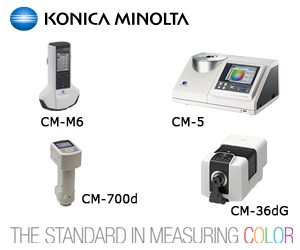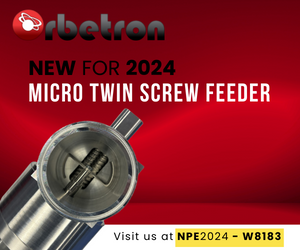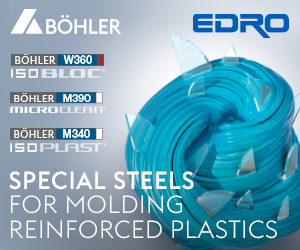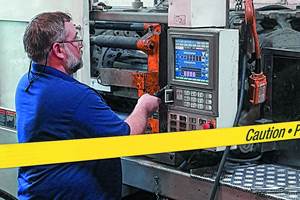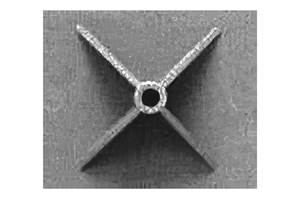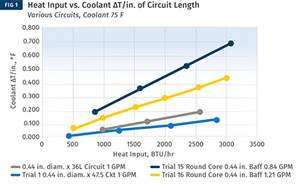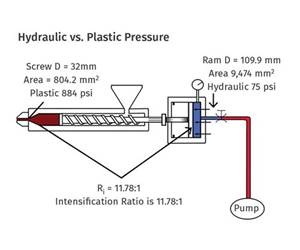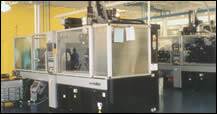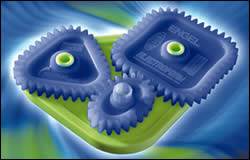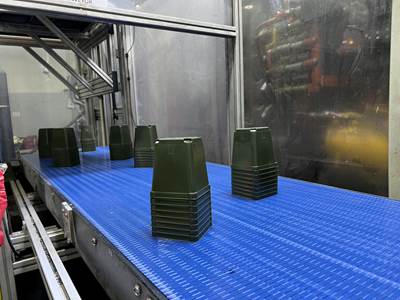Winzeler Gear Thrives With a Little Help from Its Friends
Strategic partnerships give a small molder the technical clout of a much bigger firm.
Winzeler Gear is not your typical small custom molder. It’s one of the few firms specializing in injection molding plastic gears—and even fewer that mold nothing else. Second, it has stragetically aligned itself with a materials supplier and a machine builder to acquire leading-edge technology and expertise that much larger companies cannot match. A third distinction meets your eye on the plant floor, where gear-themed artwork on the walls, windows, and even molding presses testifies to the plant owner’s passion for the arts and his desire to make them part of a creative working environment.
Winzeler Manufacturing & Tool Co. was started by Harold Winzeler in 1940, producing stamped metal gears in Chicago. In the 1960s, Winzeler began to explore the potential of molded plastic gears. His son John took over the business in the mid-1980s and converted it entirely to injection molding under a new name, Winzeler Gear.
Today, the firm has capacity to mold 150 million gears annually with 40 injection machines from 30 to 200 tons in a 42,000-ft2 plant. It has about 50 employees and operates 24/5, generating an anticipated $12-13 million this year.
Winzeler’s business comes 75% from Tier 2 and 3 automotive suppliers, with the remainder in
lawn/garden and appliances. The firm was hit hard during the recession of 2008-09, when it had to lay off 10% of its 35 workers. “It was a painful time,” recalls John Winzeler. “Things got awfully quiet.”
But automotive came roaring back, and since then, growth has been 15% annually for Winzeler’s gear business. The firm just installed five additional presses and has three more on order, two of them to replace older models. Winzeler has filled up the 20,000-ft2 expansion built in 2000 and is mulling possibilities for adding more space.
GROWING THROUGH PARTNERSHIPS
“We’re a small company. How do we perform like a much bigger one?” That question faced Winzeler when he inherited the company from his father and dedicated it to plastics gears. His answer has been to ally his firm closely with technology partners that can give his firm an edge over competitors in the U.S. and abroad.
One of his two key strategic partners is DuPont Performance Polymers, Wilmington, Del. This relationship dates back to the 1950s, when Harold Winzeler started making his first plastic gears. Says John Winzeler, “I would like DuPont to be our only materials supplier, though customers don’t make that possible. As it is, DuPont supplies 90% of our materials. It’s not a formal agreement, but we have access to all the brightest minds at DuPont, from their R&D labs in Geneva and Delaware to their automotive market-development specialists in Detroit. Because of our global collaboration, we can get information from DuPont faster than any automotive company.
“And they assist us with developing new business opportunities. For example, DuPont in Detroit referred us to convert a gear from metal to plastic in an automotive transmission. After commercialization, our mutual client referred us for a similar program in Austria. DuPont in Austria assisted with technical discussions that facilitated another production program.
“The goal of our strategic relationship is 1 + 1 = 3 or more. We collaborate on materials research, dynamic testing of gears, and identifying potential clients that value our combined portfolio of knowledge. DuPont doesn’t know gears like we do. We recommend enhancements in their materials, and we get to mold and test their experimental materials first. We know about them long before General Motors does.”
Specialization is a key strategy for Winzeler. He says, “We want to run only a small range of materials and go deep (one of his favorite phrases) in those few materials to understand them better than anyone else for a select group of clients.”
Winzeler Gear molds about 70% DuPont Delrin acetal, along with some glass-filled nylon 66 and specialty polyamides like nylon 46 and PPA. “We focus on understanding crystalline materials,” says Winzeler. “Hot-runner people don’t really understand them. Most moldmakers don’t understand them.”
Winzeler’s second key strategic partnership is with Engel Machinery (U.S. office in York, Pa.). “For 25 years, they have been our only press supplier. This partnership allows us to have one source for our older and our newest equipment. Processing, maintenance, and training are optimized. All our purchases now are their tiebarless e-victory machines. We designed the new building extension around them.”
Winzeler has standardized on Engel’s hybrid machine with servoelectric injection unit and servohydraulic “ecodrive” clamp. The hybrid’s energy efficiency is similar to a more expensive all-electric machine while providing the flexibility of hydraulic power available for core pulls and other auxiliary functions. Winzeler just expanded its molding capacity with four-victory 65-ton models and a 160-tonner. Three more 65-ton presses are on order, two of them to replace Engel machines of 20-year vintage.
Winzeler says, “We have access to Engel’s best technical people around the world. Most importantly, we get phenomenal technical support because of our loyalty. We’re a sales showroom for them, and they run frequent tours through our plant. We get access to their latest developments and we have input into their R&D.”
For example, Winzeler has been using Engel’s quick-mold-change (QMC) system since it was introduced in 2003 and has developed its own mold-transport system to go with it. Molds are kept on racks at the side of the molding area (see photo) and custom-designed carts to transport the tools over to the presses. The carts have rails that allow molds to slide on rollers mounted on four pins projecting from the mold. A newer version of the cart is in the works. With quick-connect water and heater connections, mold changes can be made in 20 to 25 min.
Another product of their partnership was a two-year project to design an interface for the eDart process monitor from RJG Inc., Traverse City, Mich. In use since 2006, it was the first such integration between RJG and injection machine controls. It allowed eDart Decoupled Molding screens to appear on Engel’s CC200 control screen, where technicians could set filling, packing, and holding pressure profiles for eDart quality monitoring. Winzeler says this “cleans up the machine” by eliminating some cables and makes for faster Accept/Reject response by the eDart system for each shot, based on reading the pressure profiles.
Winzeler considers RJG to be a third partner, if not quite to the same extent as DuPont and Engel. “We have committed ourselves to them,” he says, “and we use their equipment on every job.” Scientific Molding, a philosophy and methodology of molding espoused by RJG, is a key element of Winzeler Gear’s value proposition. All the company’s process engineers have been trained in Scientific Molding by RJG, and two are RJG-certified Master Molders, with one more working toward certification now.
RJG’s eDart process monitors are located at every press and are used to set up and optimize every new job and then to monitor every shot on a pass/fail basis. “We accept or reject based on the cavity-pressure curve,” Winzeler explains. “Our default position is that every shot is a reject until it is determined to be good. Our diverter chutes start out in the reject dump position, and only switch back when a ‘pass’ signal is received from the eDart monitor.”
“When we get a process zeroed in,” Winzeler says, “we want to make the next million or 100 million parts exactly the same way—no tinkering with the process.” He notes wryly that such a philosophy is at odds with auto companies’ assumptions that cost savings will be extracted in each year of a production contract.
Still another partner is the Mechanical Engineering School at Bradley University in Peoria, Ill., whose undergraduate and graduate students provide gear-testing and material-testing data for Winzeler Gear and DuPont. Also, students have designed new test equipment for gear metrology. The results of this research are used every day in the Winzeler plant’s two metrology labs for QC and product development.
A HIGH-TECH SHOWPLACE
In pursuit of quality, productivity, and cost control, Winzeler has invested in automation throughout the plant. A central resin drying and conveying system from Labotek of Denmark has a bank of 12 individually controlled drying hoppers and a manifold system capable of distributing up to 20 materials throughout the plant.
Twenty injection presses are outfitted with automated molding cells, and every new machine coming into the plant will become a cell. A common feature of several of the cells is automated box filling and barcoding with no human intervention, which eliminates the possibility of incorrect labeling.
One cell was designed as a “universal” overmolding system for gears with magnet inserts that are later magnetized by the customer. This cell was engineered to handle different sizes of inserts for several customers that require gears with overmolded magnets. It has a bowl feeder for the inserts and a small Fanuc LR Mate six-axis robot to stage four inserts and insert them into the mold cavities while removing finished parts from the previous cycle.
The most elaborate cell uses three robots to overmold gears onto the spindles of small electric motors. One Engel linear beam robot removes eight motors from pallets and places them on a staging rack. A second Engel robot inserts the motors into the tool and removes finished parts. It sets the latter on a rack, from which a third Engel robot packs them in boxes.
Winzeler has two small Fanuc six-axis robots but is interested in Engel’s own six-axis Easix model, which promises integrated and easier programming through Engel’s machine controls. He’s also interested in economical, easy-to-program, two-armed robots that work safely alongside humans without need for safety guarding. Examples of that type are the Baxter from Rethink Robotics, Boston, and the Universal Robot from a Danish company of the same name, which has several U.S. distributors.
Before the bottom dropped out of the automotive market in 2008, Winzeler had his eye on lights-out operation, including wire-guided mold carts integrated with Engel’s QMC system. “But lower volumes per job now make it hard to justify full automation,” he notes.
CONTROLLING ITS OWN DESTINY
With the pain of the recession behind him, Winzeler has three main concerns going forward. One is that “we want to make sure we decide our future, not our customers. We’re overheated, overloaded now, but what is it going to look like in three to five years?” The key problem, he explains, is that “not all of our customers want to manage their businesses—that is, understand the maturity curve of their products. That makes it hard for us to plan ahead.
“Our pre-recession business came back strong, but a lot of it is in long-term decline. Some customers are getting out of the products we made components for, and electromechanical systems are shrinking in size, so they need fewer components from us. So the key question is: Can we keep growing new business at or better than the rate of deterioration of old business?”
Another issue is the customers themselves. “Before the recession, we had too much business from too few people.” Winzeler still finds itself in that position. “We now have a lot more emphasis on marketing and business development. To grow that top line, you have to rethink who and what you are. We learned our lesson during the recession, when we just took whatever we could get. We want customers that appreciate our value proposition, which is two-fold: Design-Forward and Scientific Molding.”
Design-Forward refers to getting involved with a customer early in the design stage of a new project. “Anybody in plastics today knows your ability to drive improved economics is at the design stage. Collaboration drives optimization.
“Customers’ staffs are getting thinner all time. We bring R&D and material science to the table. But the purchasing guy says, ‘Show me your price.’ We want to offer a value proposition—the customer wants a price proposition.” For collaboration to work, customers have to do some rethinking, too. “Customer have built internal silos around different departments so we can’t communicate between them. We want to break down those silos.”
A third major concern for Winzeler is an industry-wide problem: lack of training. “The people who run this plant—I can’t replace them today.” He points, for example, to Harry Soling, v.p. of manufacturing: “He came out of a good industrial arts program in high-school—something that no longer exists in many schools. We shot ourselves in the foot by taking out all the high-school auto shops and machine shops and replacing them with computer labs.”
But Winzeler sees some positive signs of a turnaround in thinking: “High schools are now asking TMA, the trade association for the tooling and machining industry in the Chicago area, for help in putting machine shops back into high schools.” But he finds there’s still almost nothing specific to plastics processing to be found at that level. His message to young people today is, “Kids, if you want a job today, you have to learn to be able to do more than a robot can be programmed to do.”
Related Content
How to Mount an Injection Mold
Five industry pros with more than 200 years of combined molding experience provide step-by-step best practices on mounting a mold in a horizontal injection molding machine.
Read MoreHow to Reduce Sinks in Injection Molding
Modifications to the common core pin can be a simple solution, but don’t expect all resins to behave the same. Gas assist is also worth a try.
Read MoreImprove The Cooling Performance Of Your Molds
Need to figure out your mold-cooling energy requirements for the various polymers you run? What about sizing cooling circuits so they provide adequate cooling capacity? Learn the tricks of the trade here.
Read MoreRead Next
Small Molder Builds a High-Tech Showplace
How does a small injection molding company position itself to compete with much larger, technically sophisticated rivals?
Read MoreA Custom Molder Takes the Next Step
The question John Winzeler keeps asking is, “How do you take the next step?” In the last two decades, he has transformed the Chicago metal-stamping company he inherited from his father into a high-tech specialty molding business focused only on plastic gears.
Read MoreProcessor Turns to AI to Help Keep Machines Humming
At captive processor McConkey, a new generation of artificial intelligence models, highlighted by ChatGPT, is helping it wade through the shortage of skilled labor and keep its production lines churning out good parts.
Read More














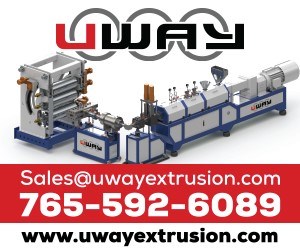




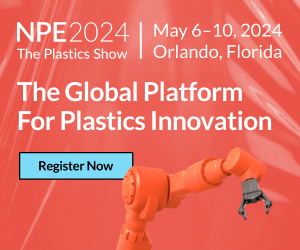
 (2).jpg;maxWidth=300;quality=90)


